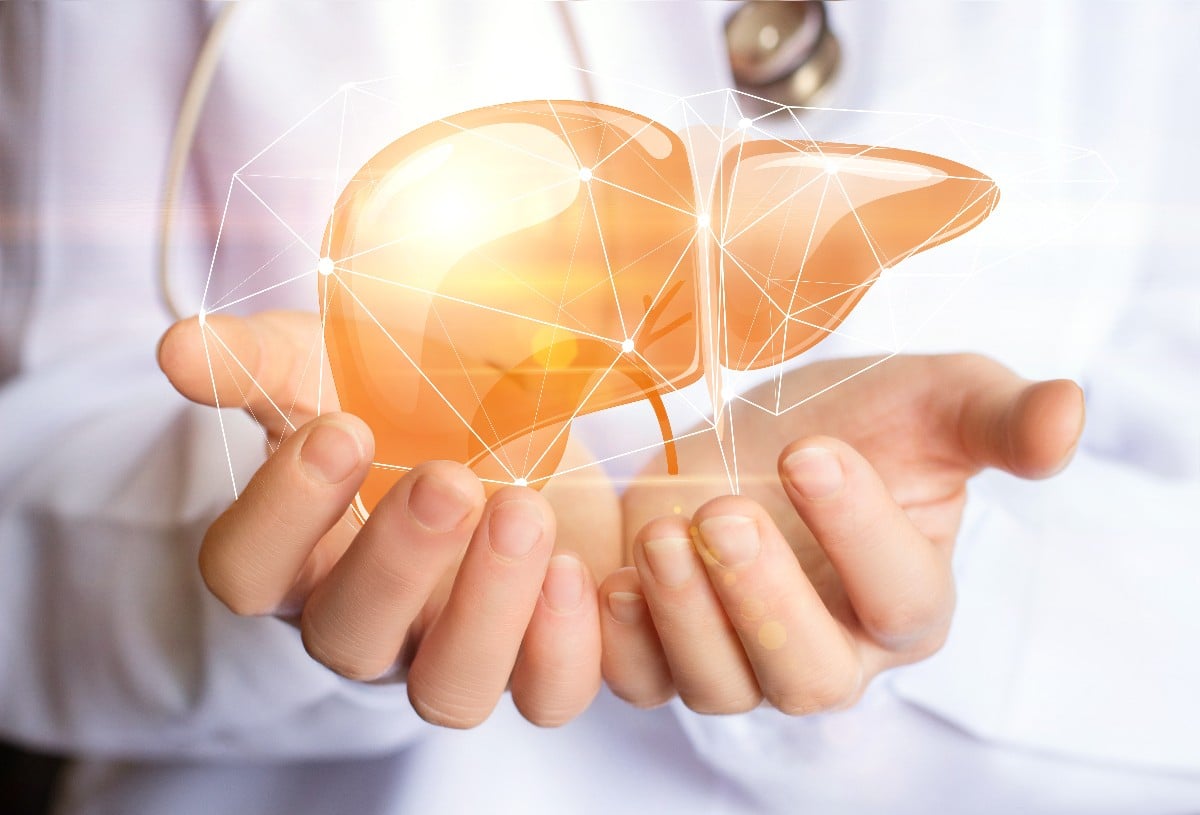
Benefits seen without worsening of fibrosis over 48 weeks
By Lori Solomon HealthDay Reporter
MONDAY, June 17, 2024 (HealthDay News) — Most patients taking survodutide, a dual agonist of glucagon receptor and glucagon-like peptide-1 (GLP-1) receptor, experience significant improvement in metabolic dysfunction-associated steatohepatitis (MASH) without worsening of fibrosis, according to a phase 2 study published online June 7 in the New England Journal of Medicine to coincide with the annual congress of the European Association for the Study of the Liver, held from June 5 to 8 in Milan.
Arun J. Sanyal, M.D., from Virginia Commonwealth University in Richmond, and colleagues assessed the efficacy and safety of survodutide in persons with MASH and liver fibrosis. The analysis included 293 adults with biopsy-confirmed MASH and fibrosis stage F1 through F3 who were randomly assigned (1:1:1:1) to receive once-weekly subcutaneous injections of survodutide at a dose of 2.4, 4.8, or 6.0 mg or placebo for 48 weeks.
The researchers found that improvement in MASH with no worsening of fibrosis occurred in 47, 62, and 43 percent of the participants in the survodutide 2.4-mg, 4.8-mg, and 6.0-mg groups, respectively, versus 14 percent in the placebo group. A decrease in liver fat content by â¥30 percent occurred in 63, 67, 57, and 14 percent, respectively, while improvement in fibrosis by at least one stage occurred in 34, 36, 34, and 22 percent, respectively. Adverse events were more frequent with survodutide, including nausea (66 percent versus 23 percent with placebo), diarrhea (49 versus 23 percent), and vomiting (41 versus 4 percent). Serious adverse events occurred in 8 percent taking survodutide versus 7 percent taking placebo.
“These data demonstrate that direct liver targeting with glucagon agonism in addition to GLP-1 effects helps resolves nonalcoholic fatty liver disease and improve fibrosis while maintaining the benefits of GLP-1 agonism,” Sanyal said in a statement.
The study was funded by Boehringer Ingelheim, the manufacturer of survodutide.
Abstract/Full Text (subscription or payment may be required)
Copyright © 2024 HealthDay. All rights reserved.